On Monday December 13th, forty members of the Tufts community gathered in Alumnae Lounge and over Zoom to watch the Green Fund finalists pitch their project ideas (swipe through event photos and videos here.) After the final presentation event, the Green Fund selection committee deliberated and voted to award all six finalists funding for their projects!
Over the next year, the winners will implement their projects across multiple Tufts campuses in the areas of specialty recycling, waste reduction, transportation, lab procedures, and pollinator ecosystems. We’ll keep you updated on their progress on our social media and monthly newsletters.

2021-2022 Winning Projects
Medford/Somerville Campus:
Tufts Pollinator Initiative 2.0 – submitted by Nick Dorian and Jessie Thuma

Tufts Pollinator Initiative 2.0 (TPI 2.0) is a project that will build on a previous Green Fund proposal from the Tufts Pollinator Initiative. The Green Fund selection committee awarded TPI 2.0 $11,000 to enhance urban pollinator conservation by planting new pollinator gardens, training Tufts undergraduate students to become environmental educators, and to strengthen Tufts Pollinator Initiative’s research mentorship program.
Previous Green Fund support has enabled TPI to plant 2500+ square feet of pollinator habitat on campus that helped support 115+ insect species, teach hundreds of Tufts undergraduate students about urban pollinators, conduct community outreach, and earn a Bee Campus USA certification from the Xerces Society. We are excited to see what they accomplish this time around!
Tufts Pollinator Initiative Presentation | Tufts Pollinator Initiative Poster
Pearson Bike Rack – submitted by Noah Mills
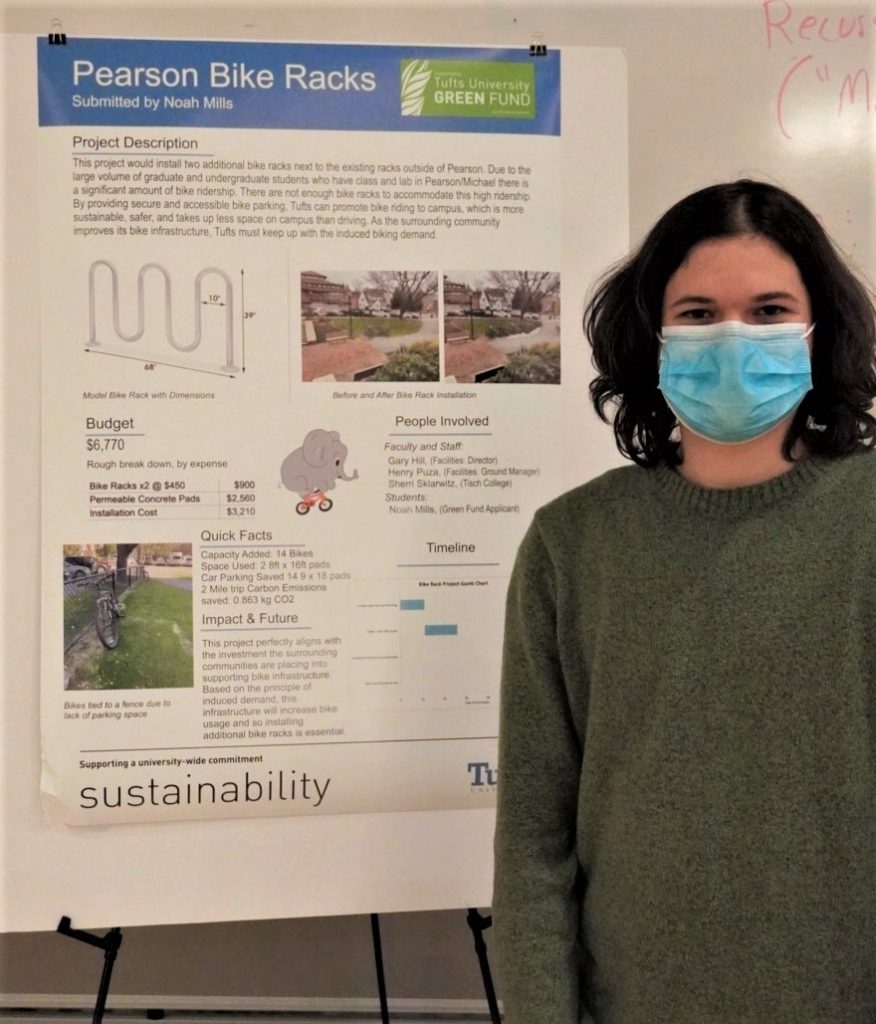
The Pearson Bike Rack project will install two additional bike racks next to existing racks outside of the Pearson Chemistry Building. The Green Fund committee awarded this project $6,770 for the construction and installation of the two new bike racks, opening up 14 new spots for students and faculty to park their bikes outside of Pearson.
Βy providing secure and accessible bike parking, Tufts can promote bike riding to campus, which is more sustainable, safer, and takes up less space on campus than driving. As the surrounding community improves its bike infrastructure, this project allows Tufts to keep up with the increased biking popularity. Not only is this good for the environment, but you’ll get quite a workout biking up the hill!
Pearson Bike Rack Presentation | Pearson Bike Rack Poster
Efficient SciTech Autoclave – submitted by Michael Saad

SciTech Autoclave is a proposal to purchase a smaller, more efficient autoclave for the SciTech Center at Tufts. Currently, the SciTech Center has a large autoclave for sterilizing lab equipment that is highly inefficient in water and electricity usage.
The Green Fund selection committee awarded the $6,330.77 to the SciTech Autoclave team for purchase of a smaller, more efficient autoclave. The CHBE and BME departments agreed to match up to $5,500 for the purchase of the autoclave.
It is estimated that a smaller autoclave will save Tufts around $3,200 annually in electricity and water costs, and it is the hope of the project team and the Green Fund committee that results from this project will prompt other labs at Tufts to purchase more efficient equipment that will provide long-term cost savings. It is estimated that a smaller capacity autoclave will divert 50% of the current usage from the inefficient large autoclave.
SciTech Autoclave Presentation | SciTech Autoclave Poster
Boston and Grafton Campuses:
Save the Fishes and Do the Dishes – submitted by Maria Brouard
With students being busy during the semester, it is popular to order takeout within a mile radius of the Boston campus and run back to lab or the library to continue studying. Save the Fishes and Do the Dishes will provide Graduate School of Biomedical Sciences (GSBS) students with reusable silverware kits including a spoon, fork, knife, and chopsticks to use as an alternative to single use plastic utensils. The Green Fund selection committee awarded this project $1,090 for the purchase of these kits and outreach for student education.
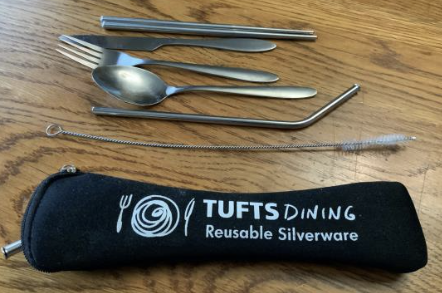
This project allows students to carry reusable silverware in their backpacks and to decrease the need to use and buy single-use plastic utensils when getting takeout, therefore decreasing the overall waste created by takeout food. Moreover, it can allow students to use their own utensils for events with strict COVID procedures instead of using single use plastic.
Save the Fishes and Do the Dishes Presentation | Save the Fishes and Do the Dishes Poster
Greening Boston Mask Recycling – submitted by Erin Mooz
Grafton Mask Recycling – submitted by Nicole Swanson
The Boston Mask Recycling project will institute a mask recycling program on the Boston campus. The Green Fund selection committee awarded this project $500 for two Terracycle disposable mask recycling boxes to be placed on the Boston campus.

The Grafton Mask Recycling project will expand the existing mask recycling program on the Grafton campus. The Green Fund selection committee awarded this project $1,095 for five Terracycle disposable mask recycling boxes to be placed near entrances/exits and other highly trafficked areas on the Grafton campus.
Masks are mandatory at Tufts for the foreseeable future. Disposable masks are used very frequently on these two campuses and this project will reduce the number of masks ending up in landfill waste. Keep an eye out for these boxes popping up on campus soon!


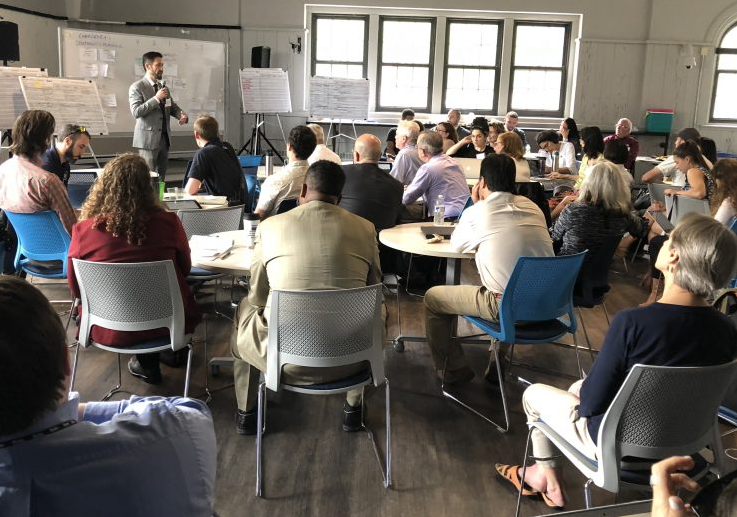



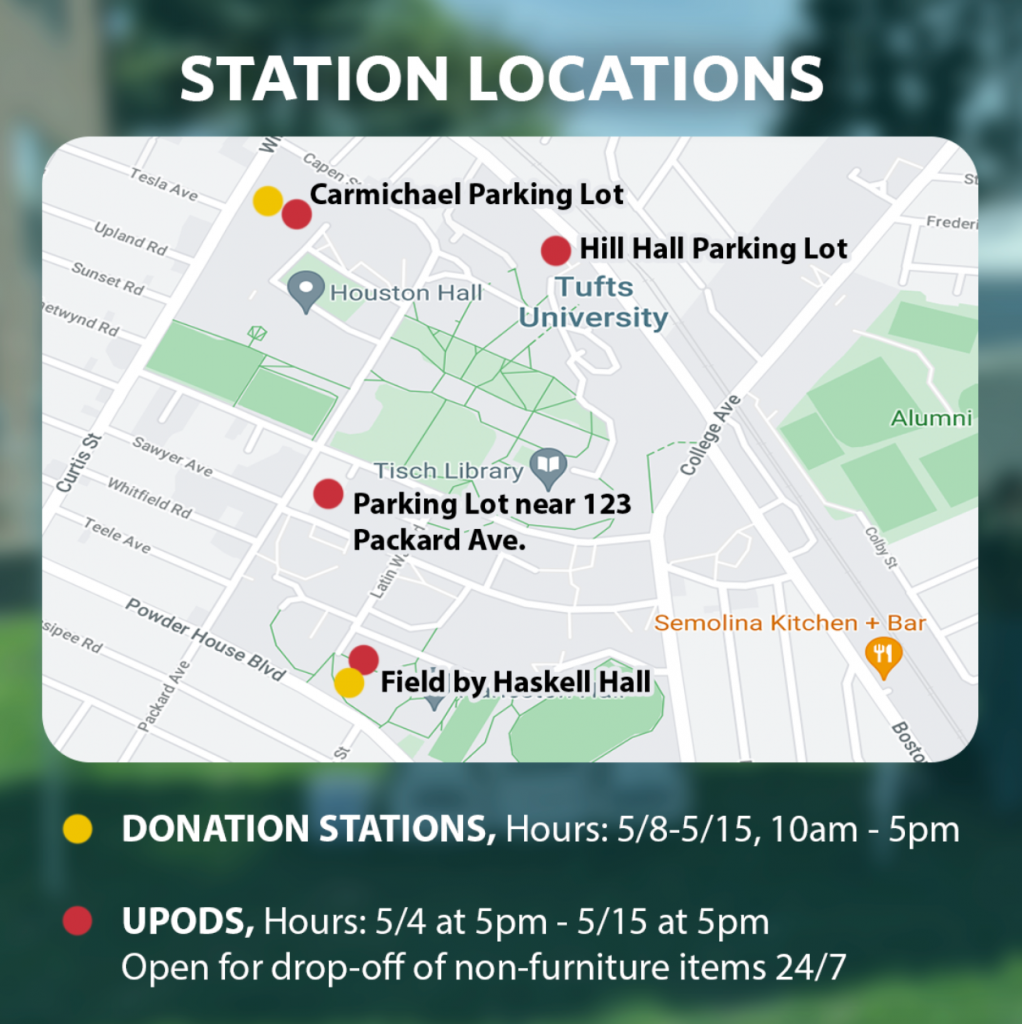
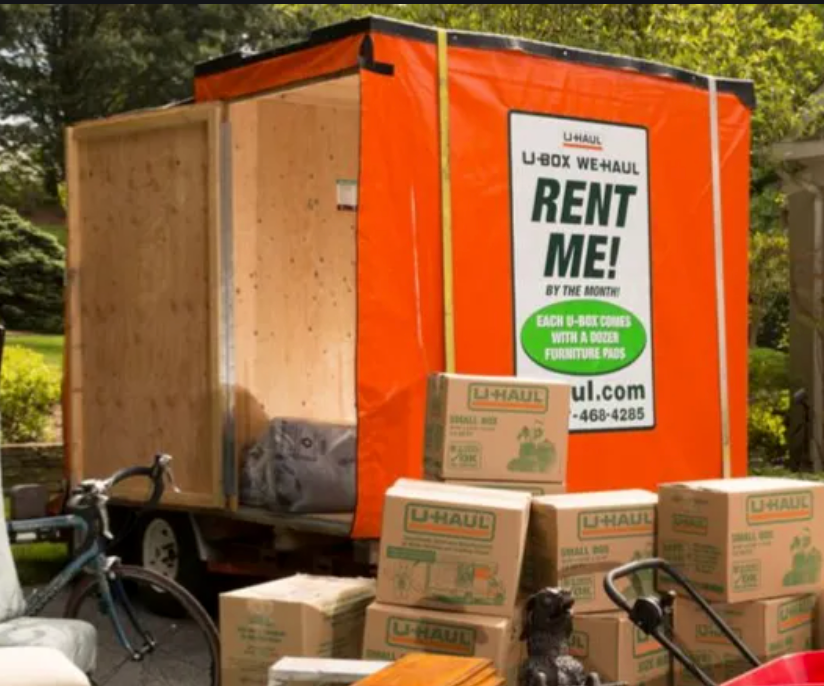

Find Us On Social Media!